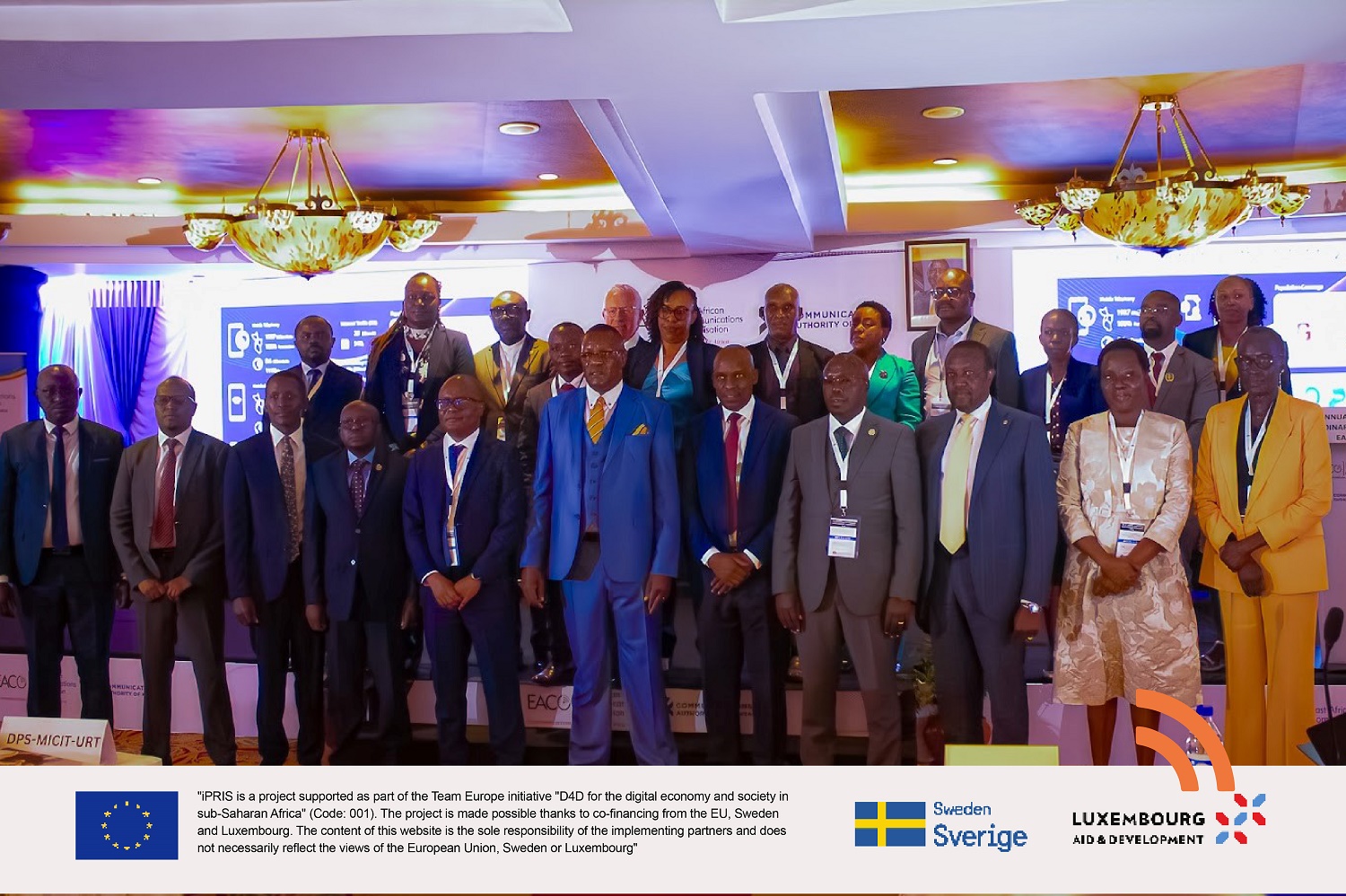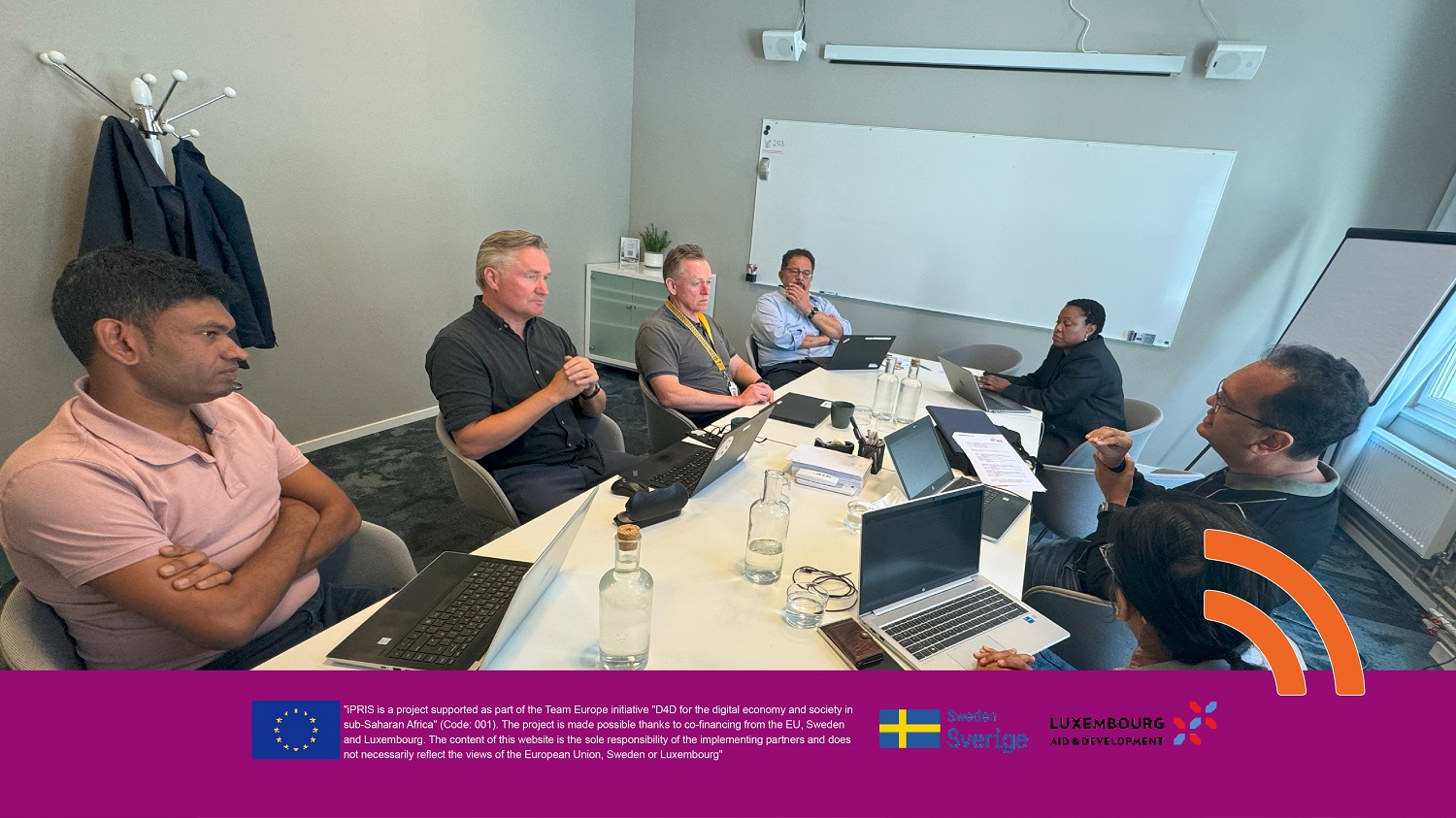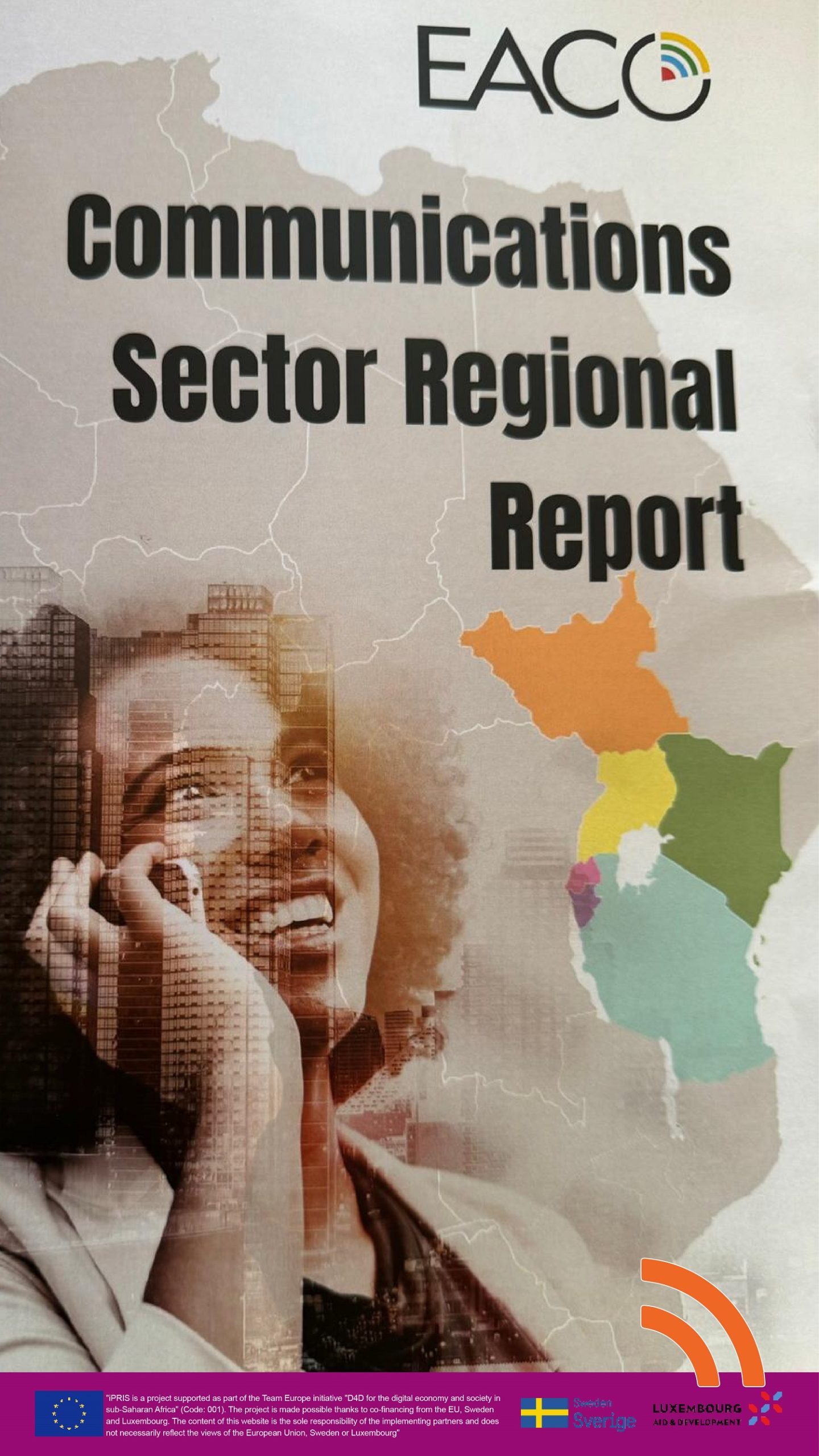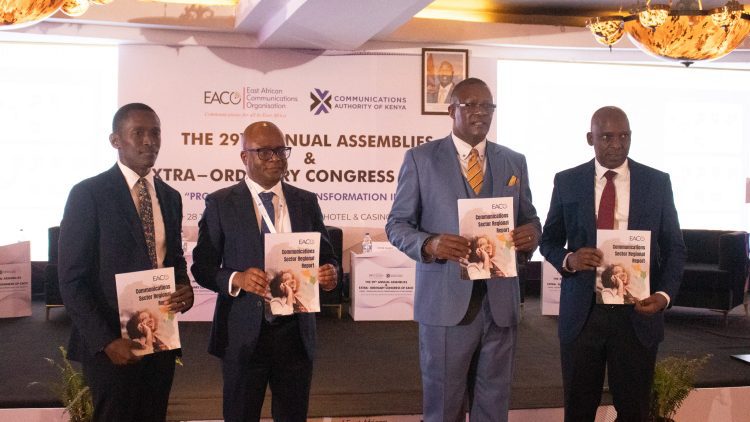[et_pb_section fb_built="1" admin_label="section" _builder_version="4.16" global_colors_info="{}"][et_pb_row admin_label="row" _builder_version="4.16" background_size="initial" background_position="top_left" background_repeat="repeat" global_colors_info="{}"][et_pb_column type="4_4" _builder_version="4.16" custom_padding="|||" global_colors_info="{}" custom_padding__hover="|||"][et_pb_text admin_label="Text" _builder_version="4.16" background_size="initial" background_position="top_left" background_repeat="repeat" global_colors_info="{}"]Hosted by the Communications Authority of Kenya (CA), the 29th Annual Assemblies & Extra-Ordinary Congress provided a unique platform for East Africa Communication Organizations (EACO) members and stakeholders to interact, network, exchange experiences, and share insights under the theme "Promoting Digital Transformation in the EAC Region." Delegates to the event included policymakers, legislators, regulators, ICT sector operators/service providers, academia, and ICT consumers from across the East African region.
Opening Session
In his keynote address, the Cabinet Secretary for Information, Communication & Digital Economy in the Cabinet of Kenya, Eliud Owalo, drew relevant case studies from Kenya's successes in advancing the ICT ecosystem. He cited the investments made in infrastructure development that have seen the setting up of over 2,000 public Wi-Fi hotspots, which have deepened affordable access to the mobile internet. He said these were geared towards creating digital marketplaces and boosting connectivity to traders and entrepreneurs, particularly the youth and women, to gain full employment within the digital ecosystem. He also highlighted the successful digitalization of at least 80 per cent (17,017) of public services.
Owalo lauded the East Africa Communications Organization (EACO) for its incredible efforts in advocating for the harmonization of legal and regulatory regimes in the region, saying they are instrumental in realizing digital transformation and providing a united approach to leveraging the full benefits of the region's digital economy.
He added that the success of the One Network area would facilitate increased interaction and e-commerce in the region. At the same time, he called for further collaboration in areas such as cyber security, SIM card registration, standardization of ICT equipment and services in the region, e-waste and green ICTs, which remain critical in catalyzing our attainment of digital transformation goals.
Addressing the session, the Director General of the Communications Authority of Kenya (CA), David Mugonyi, noted that by March 20024, the country had 132 per cent mobile penetration, 51.2 million Internet subscribers, and 38.6 million mobile money users. Smartphone penetration, he said, stood at 67 per cent even as the authority strives to keep average access charges for services such as mobile voice, data, and internet affordable for all.
He added that the regulator was committed to ensuring 100 per cent 3G and 4G population coverage in Kenya. The deployment of 5G technology will present new opportunities for all sectors of the economy. Mugonyi said the Communications Authority had implemented a regulatory sandbox to allow for the controlled use of emerging innovations and testing of new ideas before deployment to the market.
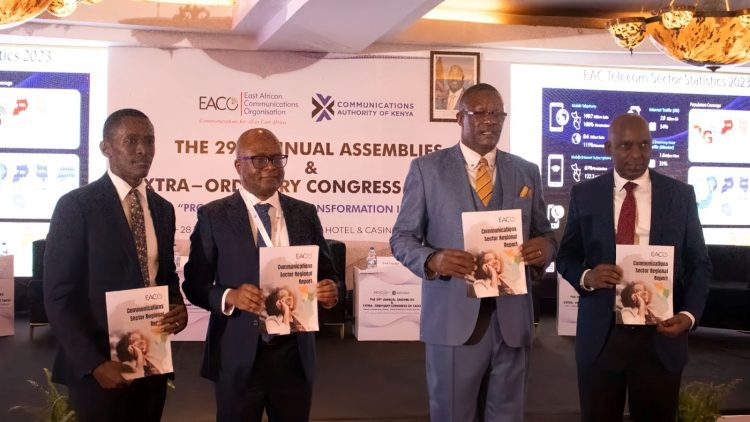
EACO utilized the opening session to unveil The 2023 EACO Communications Sector Regional Report. EACO Executive Secretary Dr. Ally Simba said the extent of coverage of basic mobile connectivity has been influenced by factors such as infrastructure, investment, and regulatory environments.
According to the report, the region has witnessed remarkable advancements in network coverage, a surge in mobile and internet subscriptions, and notable growth in mobile money services with Internet traffic at 54 per cent, with population penetration coverage of 2G averaging 92 per cent, 3G at 78 percent, and 4G averaging 62 per cent. Mobile internet subscriptions stand at 61 percent penetration with 122.3 million subscribers.
These advancements have been influenced by infrastructure, investment, and regulatory environments and have been pivotal in driving socio-economic growth, fostering digital inclusion, and enhancing connectivity across East Africa.
Session 1: High Level Roundtable Discussion on The Role of ICT in Promoting Digital Transformation in the East African Region
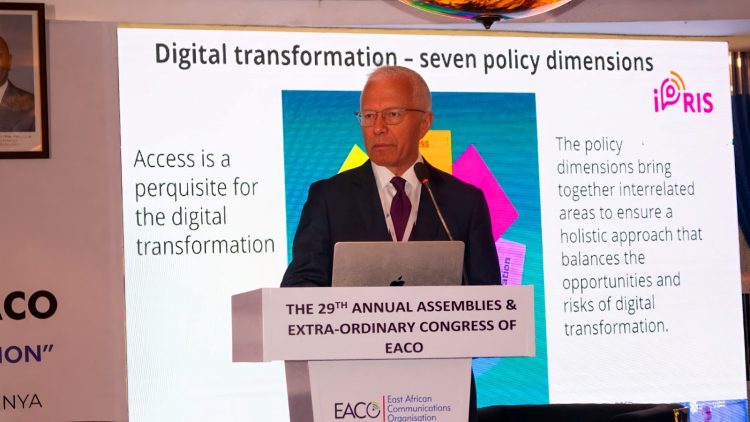 Bengt G Mölleryd- Senior analyst, Swedish Program for ICT in Developing Regions SPIDER
Bengt G Mölleryd- Senior analyst, Swedish Program for ICT in Developing Regions SPIDER
Bengt Molleryd from SPIDER (Swedish Program for ICT in Developing Regions) delivered a compelling opening presentation titled The Steps Towards Digital Transformation in the East African Region. He underscored the critical role of policy and regulatory frameworks in driving digital transformation and positioning the region to compete globally.
In his presentation, he shared some key insights that are critical to the region's attainment of global standards in regulation and technical capacity development. His submissions provided a roadmap for promoting digital transformation in East Africa through strategic policy and regulatory reforms. By addressing infrastructure, affordability, literacy, and regional cooperation, the region can unlock its digital potential and compete globally.
Here is a summary of Bengt's insights:
- To promote investments in the sector, regulators ought to promote competition, allow network and spectrum sharing, provide dedicated solutions in rural areas and inform consumers and the market.
- Peer-to-peer training for NRAs in the region, with support to develop and implement change initiatives is timely and in line with the region's strategic direction for ICT regulatory work to deliver affordable digital services and high-quality connectivity for citizens and society.
- Digital transformation is anchored on seven policy dimensions that bring together interrelated areas to ensure a holistic approach that balances the opportunities and risks of digital transformation. These dimensions are: Access, use, innovation, jobs, society, trust and market openness. Notably, access is a major prerequisite for digital transformation.
- The digital transformation requires connectivity (access to network infrastructure), competition as a driver for investments, financing of broadband networks, market investments, and development funds.
- Regulators need to continually update and enhance the capacity of their staff, with a strong focus on digital and data skills.
- Data-driven regulation is important to ensure evidence-based decision-making, enhance policy effectiveness, and foster innovation and growth.
Other representatives from the region's telecommunications sector regulators engaged in an insightful panel discussion highlighting their respective countries' enormous gains in developing their ICT and telecommunications sectors. They also spotlighted the bottlenecks that continue to hinder the fuller development and exploitation of the sector to match those in more advanced economies.
Despite the challenges the regional ICT sector grapples with, the delegates were confident that the region is on the right track and riding on the support from other partners like SPIDER through its capacity-building program, iPRIS (ICT Policy & Regulation – Institutional Strengthening), East Africa is poised to rise to the global stage and compete effectively in providing the necessary technical and regulatory environment to bridge the digital divide and unlock the untapped potential for innovations and investments in the ICT sector.
Representatives of National Regulatory Authorities (NRAs) from the East Africa region engaged in in-depth subject matter conversation in a lengthy panel discussion dissecting the region's ICT landscape from both technical and regulatory viewpoints. The panelists were:
- Director, Corporate Affairs, Representative of Director General National Communications Authority (NCA), Dr Labanya Margaret Mathya
- Director, Legal Affairs/ Commission Secretary, Representative of Executive Director, Uganda Communications Commission (UCC)Susan Wegoye
- Deputy Permanent Secretary, Ministry of Communications and Information Technology, Tanzania, Mr. Nicholas Merinyo Mkapa
- Head of Sub Saharan Africa GSMA, Ms. Angela Wamola
- The Communications Regulators' Association of Southern Africa (CRASA), Bridget Linzie.
They were joined by William Baraza, the Director of the African Advanced Level Telecommunications Institute (AFRALTI), who moderated the session.
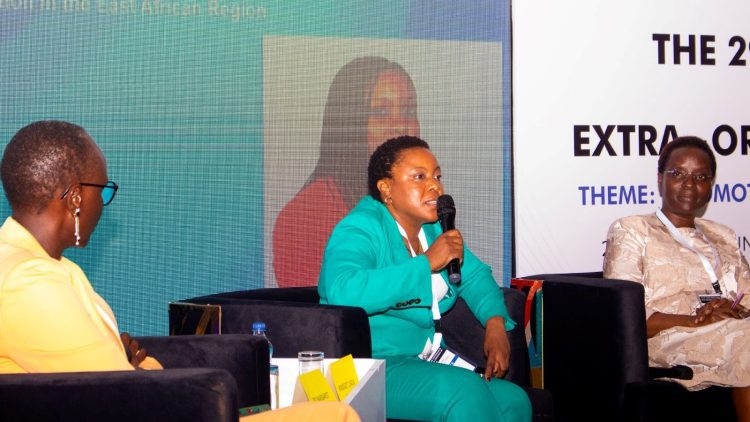 Bridget Linzie- The Executive Secretary at the Communications Regulators’ Association of Southern Africa (CRASA)
Bridget Linzie- The Executive Secretary at the Communications Regulators’ Association of Southern Africa (CRASA)
Commenting on the harmonization of regional digitalization instruments in the Southern Africa region, Bridget Linzie said: "CRASA's approach in regards to digital transformation is to ensure that we bring our people, our citizens the digital connectivity as well as services and applications that will move forward our various economic sectors to where our governments want it to be. This digital transformation strategy has already looked into the strategic goals of where we want to take SADC (Southern Africa Development Community) by 2030. And we also ensured that we look even after the continental strategy and African Union and incorporate the continental agenda into the digital transformation strategy for SADC and as regulators."
Regarding achieving universal access in the East Africa region, Ms Angela Wamola said: "To ensure that unserved and underserved populations are covered, regulators and operators must make deliberate initiatives to ensure that we achieve this total digital transformation. So, there is an opportunity to see ourselves as partners and work together to progress our digital transformation agenda."
Other salient areas the panelists pivoted on and that are core to the region's ICT sector included regional harmonization of policy and regulation, infrastructure development, affordability and accessibility of ICT services, the population's digital literacy, regional cooperation and global best practices.
- Policy and regulatory reforms: The panelists emphasized the need for comprehensive and adaptive policy frameworks that address the fast-evolving digital landscape. They advocated for evidence-based policies that foster innovation, protect data privacy, and ensure cybersecurity, highlighting that these elements are crucial for building trust and encouraging investment in the digital economy.
- Infrastructure development: A significant focus was placed on the importance of robust digital infrastructure which is necessary for increased investment in broadband networks, particularly in underserved rural areas, to bridge the digital divide and ensure equitable access to digital services. While there have been notable investments in infrastructure installations, significant gaps exist, especially in rural areas across the region. Further investments are required to expand the infrastructure network in the region to facilitate access and affordability to a critical mass.
- Affordability and accessibility: Addressing affordability issues, the discussants suggested implementing regulatory measures to reduce the cost of internet access including promoting competition among telecom providers and offering subsidies or incentives to lower prices, making digital services accessible to a broader population. Whereas internet penetration has significantly increased, it is still costly for most of the population. This deficit is responsible for many of the region's economic challenges, including digitalization of government services, payments and innovations.
- Digital literacy and skills: To harness the full potential of digital transformation, the panelists stressed the need for comprehensive digital literacy programs. They proposed collaborations between governments, the private sector, educational institutions, and other partners to equip citizens with the necessary digital skills to empower them to participate effectively in the digital economy both locally and globally.
- Regional cooperation: Regional integration and cooperation among East African countries remain important in the region's ICT development. It is a prerequisite to harmonizing ICT policies and regulations across the region to facilitate cross-border digital trade and innovation, creating a more competitive and cohesive digital market. The panelists were unanimous that working together would accelerate the region's ICT policy and regulation harmonization and position it to compete strategically with global economies.
- Leveraging global best practices: To compete with global economies, the speakers recommended that East Africa adopt and adapt best practices from leading digital economies, including learning from successful digital transformation initiatives worldwide and tailoring them to the region's unique context. They also called for more knowledge sharing and benchmarking across the region, including with other regions of the continent, such as Southern and Western Africa.
Session 2: The Role of ICT in Promoting E-commerce in Postal and Courier Services
This session featured speakers such as Joan Toroitich, the General Manager of Payment Services at the Postal Corporation of Kenya, Molefe Mathibe, the CEO of JMAT Business Advisory Services, and Dr. Sifundo Chief Moyo, the Secretary General of the Pan African Postal Union (PAPU).
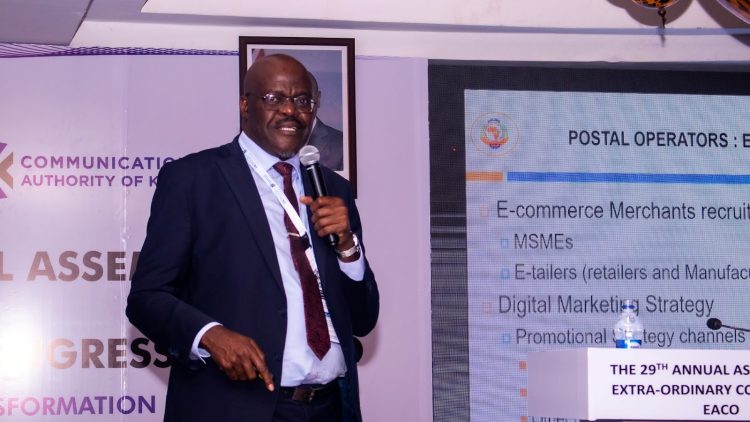 Dr. Sifundo Chief Moyo.- Secretary General Pan African Postal Union (PAPU)
Dr. Sifundo Chief Moyo.- Secretary General Pan African Postal Union (PAPU)
The region's sector representatives discussed the strides made and challenges encountered, particularly in the rapidly evolving technological landscape.
The discussions highlighted significant progress in revolutionizing postal services and the challenges encountered in a rapidly evolving technological landscape. They also highlighted existing policy and regulatory frameworks in leveraging digital technologies to enhance service delivery in the face of a rapidly evolving technological landscape.
Session key highlights
The workshop acknowledged the strides made in integrating ICT with postal and courier services, leading to improved efficiency and customer satisfaction. Digital platforms have streamlined operations, enabling faster and more reliable parcel tracking and delivery. Notable success stories included the adoption of mobile apps and online portals by several East African postal services, which have facilitated easier access to services for customers.
The workshop recognized the transformative impact of mobile payments on e-commerce in the region. Services such as M-Pesa in Kenya and MTN Mobile Money in Uganda have revolutionized payment systems, making transactions more accessible and secure for both consumers and businesses.
Despite these advancements and the fast-paced evolution of technology, the sector faces significant challenges, primarily due to infrastructure deficits, particularly in rural areas. The lack of reliable internet connectivity and poor road networks hamper efficient service delivery in remote regions. Keeping up with the latest digital innovations requires substantial investment in infrastructure and continuous workforce upskilling.
Existing policy and regulatory frameworks are another obstacle since they are often outdated and do not adequately address the needs of the modern digital economy. There is a pressing need for policymakers to develop and implement regulations that support technological innovation and ensure a level playing field for all market participants.
Regulatory challenges also include ensuring consumer protection in the digital space, combating cybercrime, and fostering a competitive market environment. Participants called for more dynamic and responsive regulatory approaches to keep pace with technological advancements.
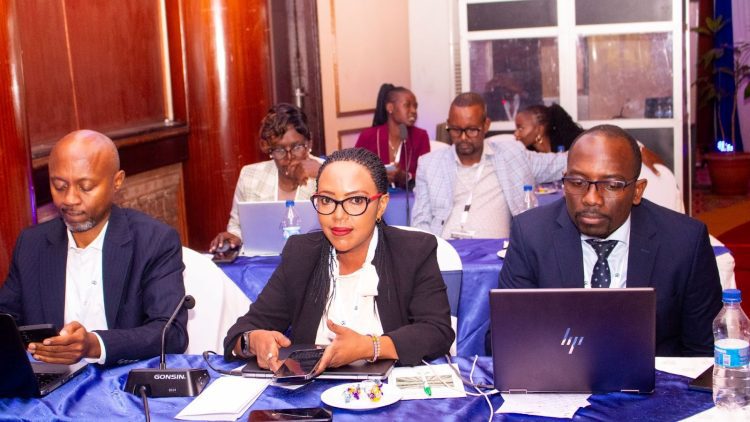 Delegates listening in during the EACO 29th Annual Assemblies & Extra-Ordinary Congress.
Delegates listening in during the EACO 29th Annual Assemblies & Extra-Ordinary Congress.
A recurring theme was the necessity for harmonized policies across East Africa to facilitate cross-border e-commerce. Unified regulations would streamline operations, reduce the complexity and costs associated with cross-border transactions, and enhance collaboration between countries, creating a more integrated and competitive regional market that can better compete on a global scale.
The digital divide between urban and rural areas continues to be a pain point. Rural regions often lack the necessary infrastructure to support advanced ICT solutions, which hampers the delivery of efficient postal and courier services in these areas.
The importance of capacity building was underscored, with discussions focusing on the need for continuous training programs for postal and courier service staff. Equipping personnel with digital skills is crucial for effectively managing ICT tools and platforms.
In conclusion, whereas the region has made significant strides in developing and deploying telecommunications technologies, there is still more ground to be covered in reforms in policy and regulation to facilitate harmonization and cooperation. The region stands at a pivotal moment in its journey towards deepening access and affordability to unlock its digital economy potential and participate more fully in the global arena.
In this context, iPRIS continues to empower telecom regulators in sub-Saharan Africa to boost their capacity to shape and implement regulatory frameworks in the telecommunications sector.
The week-long assembly also featured a packed schedule, including a full-day committees and working group meetings such as the Legal and Constitutional Affairs Committee (LCAC), Finance, Audit & Risk Management Committee (FARMC), EACO Communications Sector Indicators Harmonization and ICT Infrastructure Development, Connectivity, Sharing & Digital Inclusion, among others.
EACO has adopted a new Constitution to effectively deliver its mandate during the Extra-Ordinary in Nairobi. EACO has also admitted ARPTC of DRC and NCA Somalia as new Members and Observers, respectively.
[/et_pb_text][/et_pb_column][/et_pb_row][/et_pb_section]






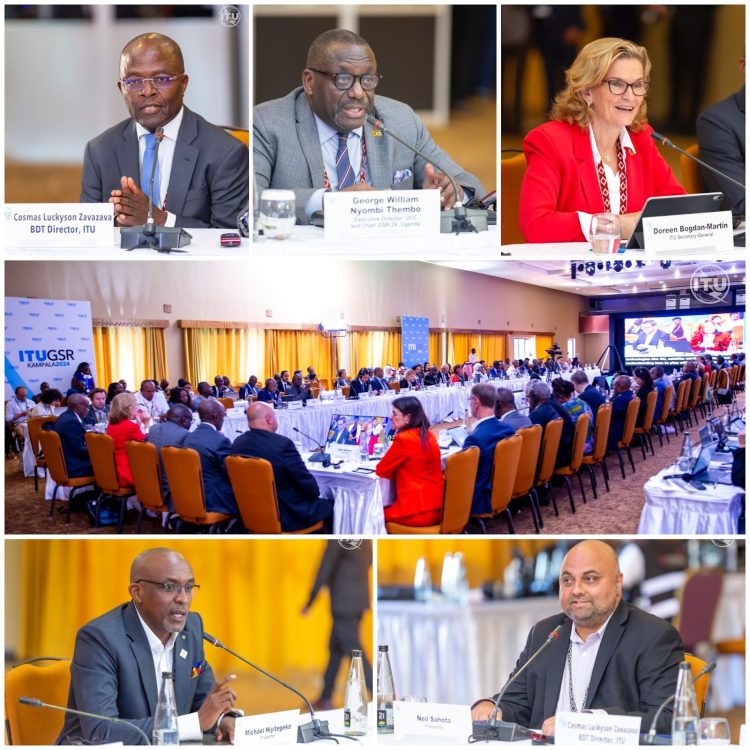
 From left: Dr Cosmas Zavazava (ITU) and Mr George William Nyombi Thembo (UCC)
From left: Dr Cosmas Zavazava (ITU) and Mr George William Nyombi Thembo (UCC)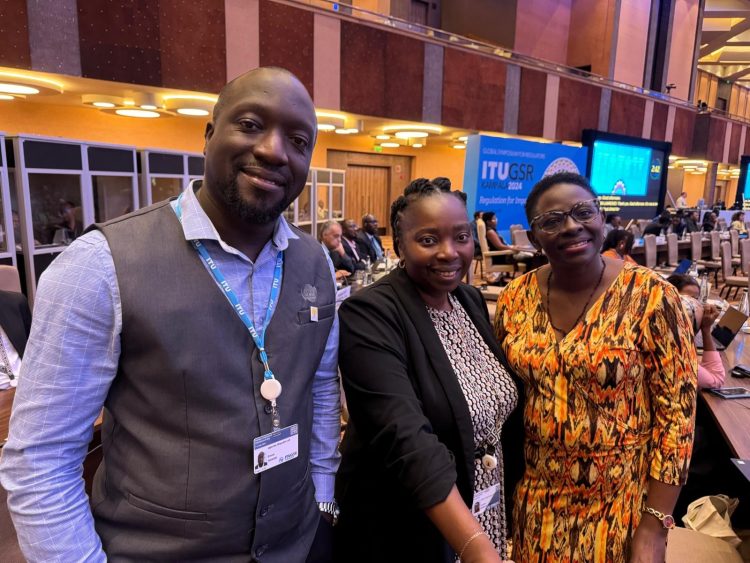 From left: Enock Wakabi (UCC), Dr Caroline Wamala (SPIDER), and Priscilla Namugerwa (UCC) at GSR-24
From left: Enock Wakabi (UCC), Dr Caroline Wamala (SPIDER), and Priscilla Namugerwa (UCC) at GSR-24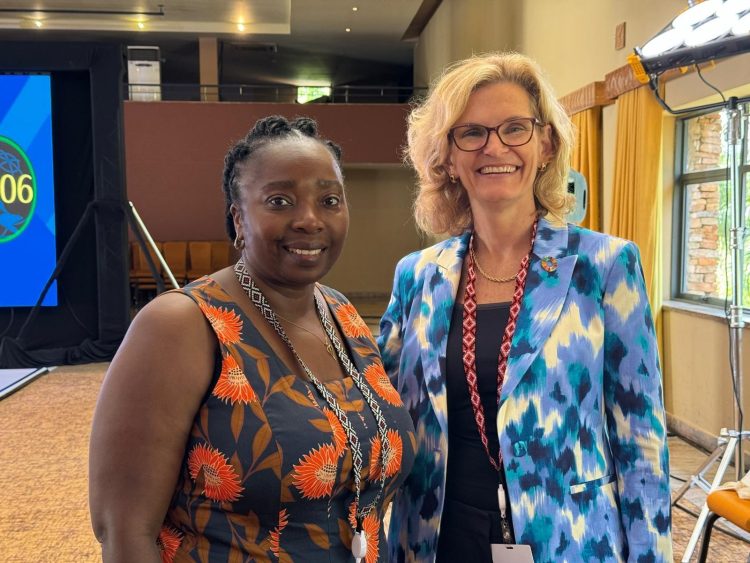 SPIDER director Dr Caroline Wamala (left) and ITU secretary general Ms Doreen Bogdan-Martin (right) at GSR-24
SPIDER director Dr Caroline Wamala (left) and ITU secretary general Ms Doreen Bogdan-Martin (right) at GSR-24
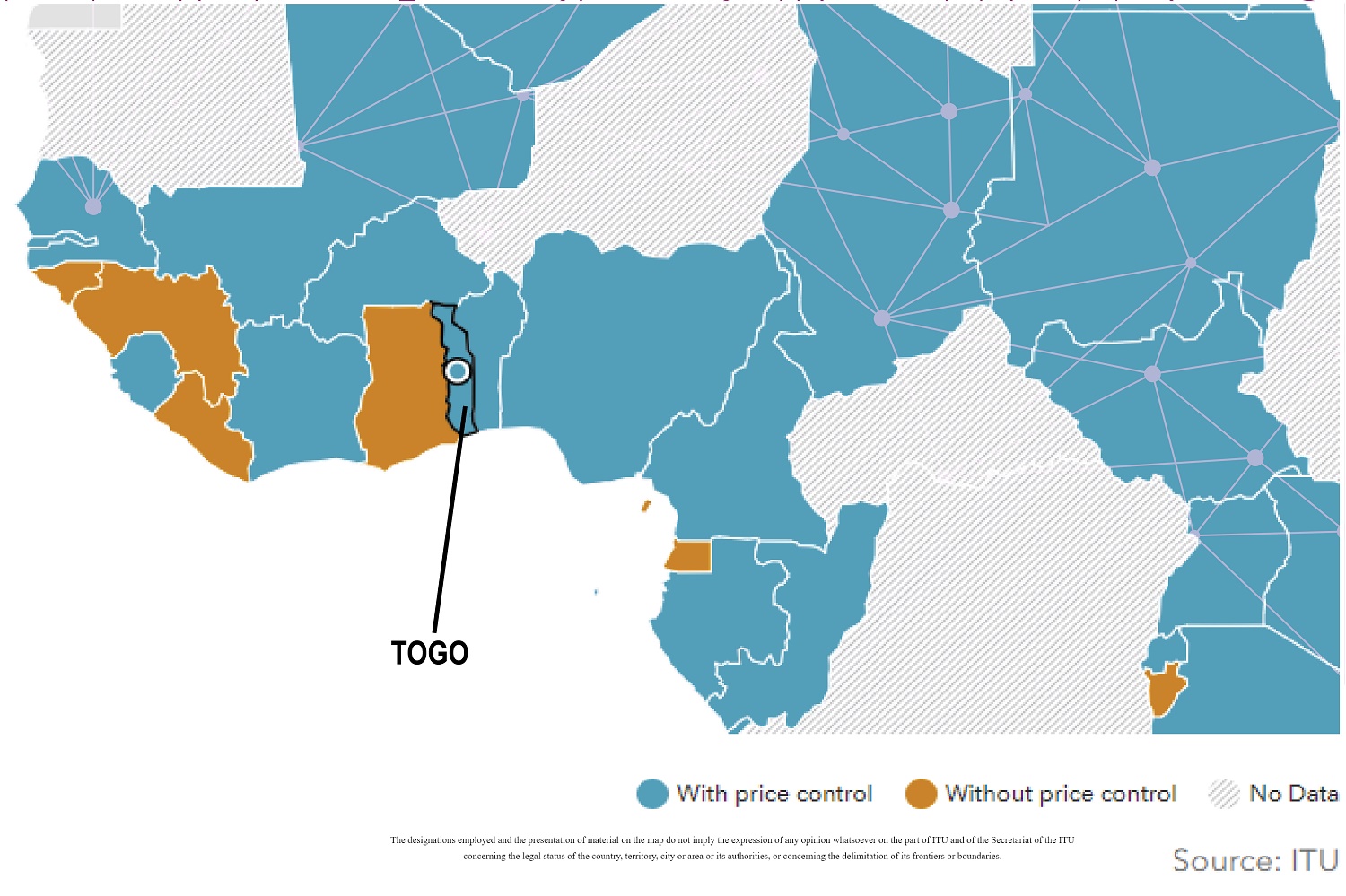


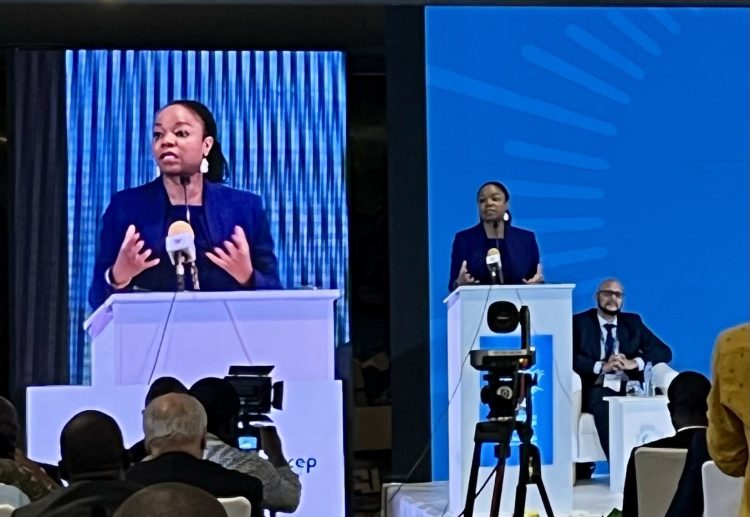 Cina Lawson, Minister of Digital Economy, Togo. ©
Cina Lawson, Minister of Digital Economy, Togo. ©


